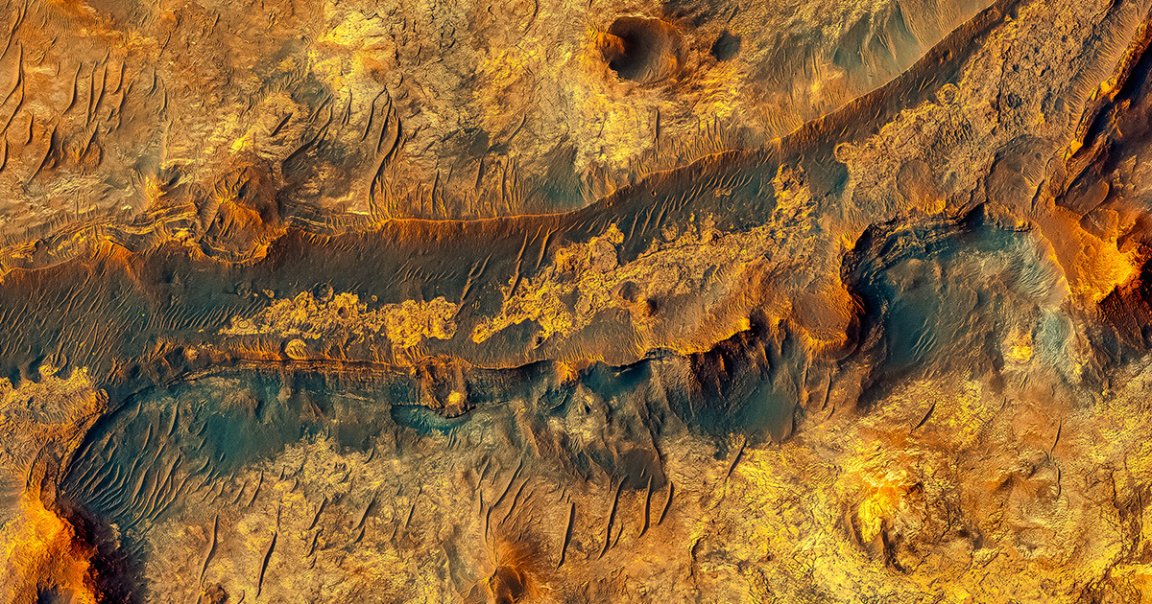
Well, Well, Well…
Researchers say they’ve made the first-ever detection of liquid water on Mars, in a reservoir trapped miles beneath the Red Planet’s surface.
The findings, published as a study in the journal Proceedings of the National Academy of Sciences, could help explain what happened to Mars’s oceans after they disappeared three billion years ago.
Until now, the remnants of the planet’s wet era were frozen patches of permafrost at the planet’s poles. With this latest discovery, however, it appears that — though the surface oceans may be gone — water may still exist in even vaster quantities underground.
“Our liquid water estimate is more than the water volumes proposed to have filled possible ancient Martian oceans,” study co-author Vashan Wright, an assistant professor at UC San Diego’s Scripps Institution of Oceanography, told The Guardian.
Good Vibrations
The detection is quite literally seismic: the researchers used data collected by the (retired) Mars InSight Lander on over a thousand Martian quakes (Marsquakes) to sound out what was happening underground.
By measuring the speed of the seismic waves that caused these vibrations, then pairing it with rock physics models and gravity data, researchers could piece together the composition of the crust these acoustic signals traveled through.
“These are actually the same techniques we use to prospect for water on Earth, or to look for oil and gas,” co-author Michael Manga, a professor of earth and planetary science at UC Berkeley, told BBC.
And the best explanation for what they saw, the researchers say, is a layer of fractured rocks filled with water, buried some six to 12 miles deep inside the Martian crust.
Hiding Place
Mars once flowed with oceans and rivers, like Earth. But around four billion years ago, most of its protective atmosphere vanished. And over the course of hundreds of millions year that followed, so did all the water. It was believed that most of it was lost to space. Now, it’s looking more like a significant amount of that water retreated underground.
This could change our understanding on how the planet’s climate and geology evolved. And, yes: it’s absolutely a promising clue in the search for life on the Red Planet, too. Manga suggests that the reservoir itself could be a “habitable environment.”
“It’s certainly true on Earth — deep, deep mines host life, the bottom of the ocean hosts life,” Manga said in a statement about the work. “We haven’t found any evidence for life on Mars, but at least we have identified a place that should, in principle, be able to sustain life.”
As for what this means for human life ever establishing a foothold on the planet: not much. The water is probably far too deep for potential colonists to ever tap into — but don’t let that take any shine off this stellar discovery.
More on Mars: Scientists Propose Low Cost Plan for Terraforming Mars